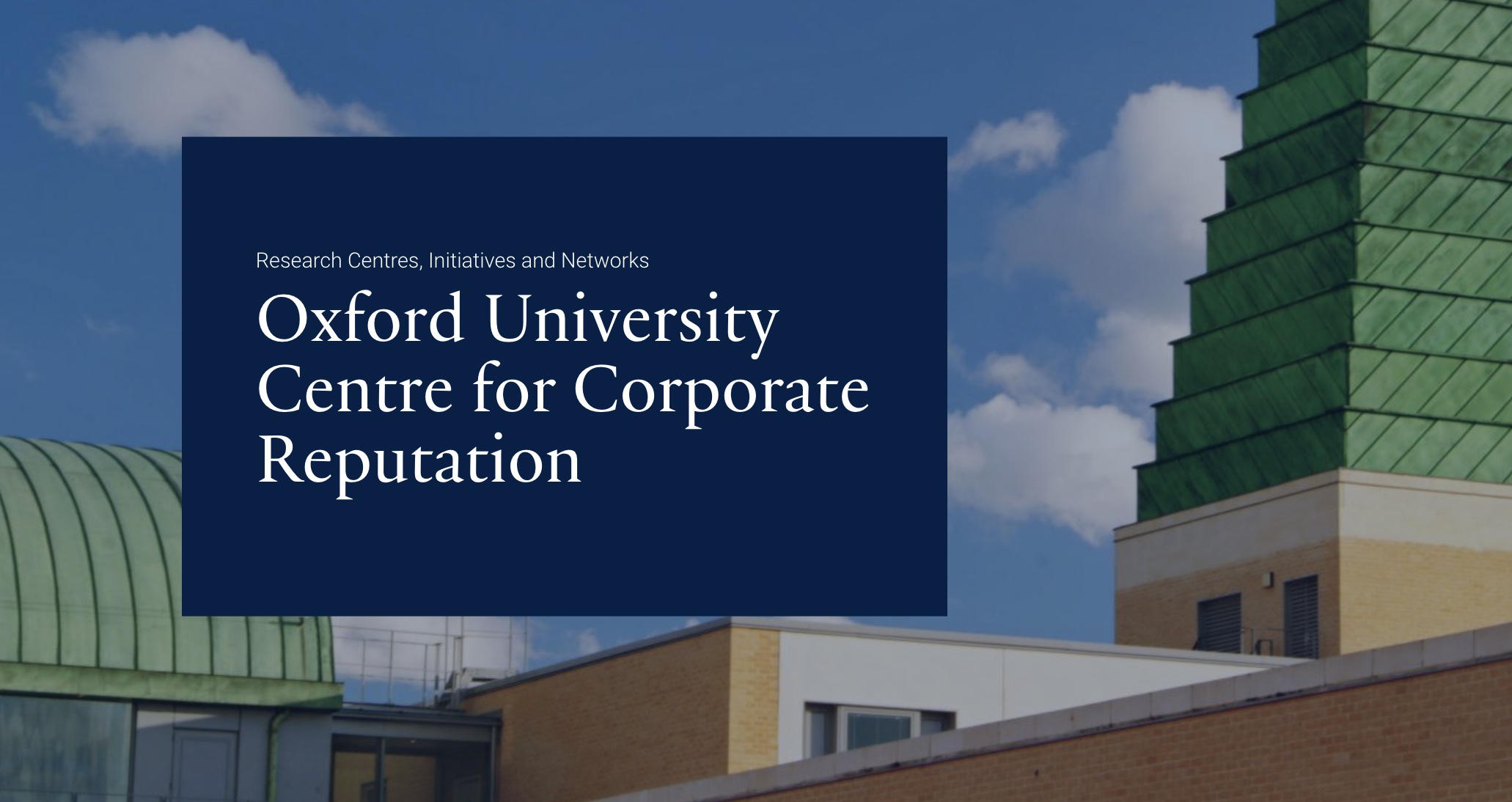R:ETRO webinars - Reputation: Ethics, Trust, and Relationships at Oxford
Information about upcoming R:ETRO webinars and links to recordings and abstracts from past webinars. To be added to the mailing list, email reputation@sbs.ox.ac.uk.
Trinity term 2024
23 April 4-5pm BST The logic and perils of business ethics denial
Hasko von Kriegstein, Associate Professor in the Department of Law and Business, Ted Rogers School of Management, Toronto Metropolitan University
Register and read the abstract
7 May 4-5pm BST Repoliticising rights: gender, development, and impact investing
Lauren Kaufmann, Assistant Professor of Business Administration, Darden School of Business, University of Virginia
Register and read the abstract
21 May 4-5pm BST Business ethics, democracy and social trust
David Silver, Associate Professor and Director, W Maurice Young Centre for Applied Ethics
Register and read the abstract
4 June 4-5pm BST Nudge, shove, push – when is influencing employees beyond their immediate work duties morally permissible?
Rebecca Ruehle, Assistant Professor, School of Business and Economics, Management and Organisation, Vrije Universiteit
Hilary term 2024
Fighting organised numbness: unpacking necropower and disposability on the margins of (un)learning, (dis)embodiment and (re)orienting
Mar Perezts, Professor of Philosophy and Organization, Emlyon Business School
Watch the webinar and read the abstract
Boundary cases in stakeholder theory
Robert Philips, Professor of Sustainability; George R Gardiner Professor in Business Ethics, Schulich School of Business
Watch the webinar and read the abstract
Believing what you want to believe even when you know it's wrong
Nina Strohminger, Assistant Professor of Legal Studies & Business Ethics, Wharton University of Pennsylvania
Michaelmas term 2023
Simone de Beauvoir and grand challenges: an existentialist ethics that can overcome barriers to trust when death, danger and vulnerability loom large
Helet Botha, Assistant Professor of Business Policy and Strategy, University of Michigan-Dearborn
Watch the webinar and read the abstract
Social media, off-duty laudatory conduct, and employment
Vikram Bhargava, Assistant Professor of Strategic Management & Public Policy, George Washington School of Business
Watch the webinar and read the abstract
Reading Milton Friedman liberally: Friedman and the doux commerce thesis
Rosemarie Monge, Associate Professor, Opus College of Business, University of St Thomas
